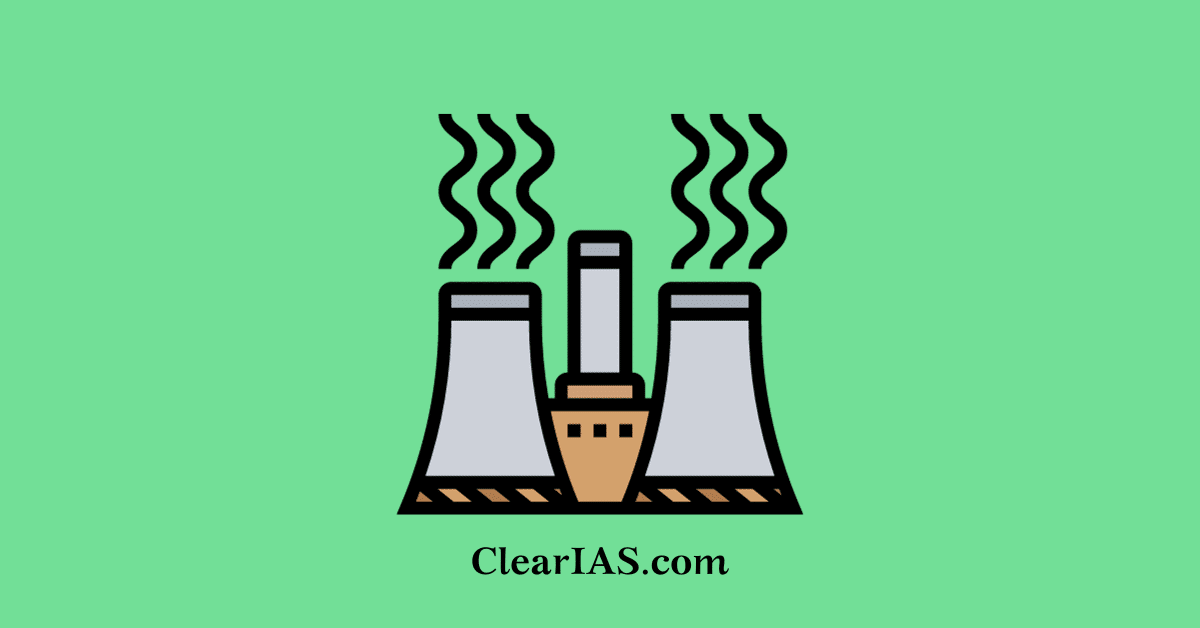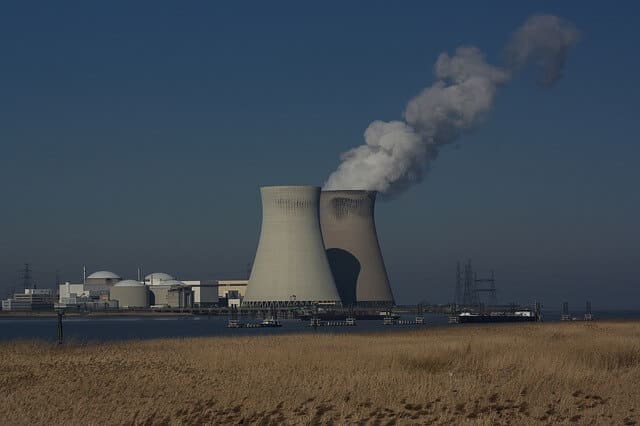 Nuclear Suppliers Group (NSG) is a group of nuclear supplier countries that seek to prevent nuclear proliferation by controlling the export of materials, equipment, and technology that can be used to manufacture nuclear weapons.
Nuclear Suppliers Group (NSG) is a group of nuclear supplier countries that seek to prevent nuclear proliferation by controlling the export of materials, equipment, and technology that can be used to manufacture nuclear weapons.
Why NSG?
Note: Subscribe to the ClearIAS YouTube Channel to learn more.
NSG was formed with the objective of averting the proliferation of nuclear weapons and preventing acts of nuclear terrorism.
Nations in the NSG

NSG consists of 48 members which include the five nuclear weapon states US, UK, France, China, and Russia. It is not a formal organization, and its guidelines are not binding. Decisions, including on membership, are made by consensus
India is not a member of NSG. Why?
In answer in short – opposition from come countries like China as India has not signed Nuclear Non-Proliferation Treaty. But there is more to this. Let’s analyze first the sequences of some events connected to nuclear supply/proliferation.
NPT and NSG
- NPT (Nonproliferation Treaty) is an international treaty, which came into force in 1970. The main objective was to prevent the spread of nuclear weapons and weapons technology.
- Apart from India, Pakistan and Israel have also not signed NPT.
- India refused to sign NPTbecause (1) The NPT defines “nuclear weapons states” as those that tested devices before 1967, which means India cannot ever be one. (2) No fixed timelines have been mentioned for disarmament. (3) NPT is unfair treaty as nuclear weapon states have no obligation to give them up while non-nuclear states are not allowed to have them.
- India conducted its first Nuclear test -Pokhran-I (Smiling Buddha), in 1974.
- The nuclear powers were convinced that the Nuclear Non-Proliferation Treaty (NPT) alone would not halt the spread of nuclear weapons. Consequently, NSG was formed in 1974.
- The current guidelines of NSG state that a non-NPT state cannot become a member of NSG which keeps India out of the group.
- In 1998 India conducted the second nuclear Test (Operation Shakti).
- India is committed to voluntary, unilateral moratorium on nuclear testing. It has taken voluntary measures to ensure strong nuclear export control.
- However, new sanctions were imposed on India by Western Countries, especially US.
- In the pre-2005 period, the NSG denied fuel for the Tarapur Atomic Power station, while the US used MTCR (Missile Technology Control Regime) provisions to prevent the transfer of cryogenic engine technology from Russia.
- India finally managed to have some relief when the US relented and agreed to a civil nuclear deal with India in 2008. This agreement has been done in view of the requirement for the US under Section 123 of its Atomic Energy Act 1954, hence also known as 123 Agreement. Under this, India signed a civil-military separation plan and India-IAEA safeguard agreement. In return, US diplomacy helped us to get NSG waiver.
- During a state visit to India in November 2010, U.S. President Barack Obama announced U.S. support for India’s participation in the Nuclear Suppliers Group, the Wassenaar Arrangement, the Australia Group and the Missile Technology Control Regime, “in a phased manner,” and to encourage the evolution of regime participation criteria to that end, “consistent with maintaining the core principles of these regimes”.
- India has taken a formal pledge stating that it would not share sensitive nuclear technology or material with others and would uphold its voluntary moratorium on testing nuclear weapons.
- Due to which the NSG participating governments agreed to grant India a “clean waiver” from its existing rules, which forbid nuclear trade with a country which has not signed the Nuclear Non-Proliferation Treaty (NPT). This made India eligible to receive advanced nuclear technologies that could be used to enrich uranium and reprocess plutonium. This has helped India a lot.
- However, being out of the elite NSG group has kept India still out of latest technologies as it is the NSG members that have the latest and the most efficient technology.
- In 2016 India applied for NSG membership. Pakistan and Namibia followed the suite.
China’s Opposition
While a majority of the 48-member group backed India’s membership, China along with New Zealand, Ireland, Turkey, South Africa and Austria were opposed to India’s admission.
China insisted that India should sign NPT for NSG membership. It wants a non-discriminatory criterion for the admission of countries who have not signed NPT. It is an open secret that China’s resistance is to facilitate the entry of Pakistan a close ally of China.
But Pakistan’s credentials for NSG membership are highly flawed and inadequate. On the other hand, over the years India has shown adherence to IAEA safeguards and has taken voluntary measures to abide by NPT and NSG guidelines while Pakistan has not taken any such initiatives.
NSG membership – Is it important for India?

- Membership to the NSG will essentially increase India’s access to state-of-the-art technology from the other members of the Group.
- Access to technology and being allowed to produce nuclear equipment will give a boost to the Make in India program. That will, in turn, boost the economic growth of our country.
- As per India’s INDC under the Paris Climate agreement, we have committed to reducing dependence on fossil fuels and ensuring that 40% of its energy is sourced from renewable and clean sources. In order to achieve this target, we need to scale up nuclear power production. This can only happen if India gains access to the NSG.
- Namibia is the fourth-largest producer of uranium and it agreed to sell the nuclear fuel to India in 2009. However, that hasn’t happened, as Namibia has signed Pelindaba Treaty, which essentially controls the supply of uranium from Africa to the rest of the world. If India joins the NSG, such reservations from Namibia are expected to melt away.
Factors in favor of India’s membership
- France got membership in the elite group without signing the NPT.
- Commitment to nonproliferation: India’s commitment to bifurcate its civilian and military nuclear programs along with its nonproliferation record ensured indigenously developed technology is not shared with other countries.
- Transparency: India has also ratified an Additional Protocol with the International Atomic Energy Agency (IAEA) which means that its civilian reactors are under IAEA safeguards and open for inspections.
Conclusion:
The recently framed draft proposal for accepting new members into the Nuclear Suppliers Group increases India’s chances of entry into NSG. It’s a welcome development for India as NSG membership would definitely boost the economic and strategic development in the future.
Therefore, India should take up this opportunity to aggressively pursue the development of nuclear energy while providing the essential emphasis on safety and addressing concerns of the public. It will also pave the way for clean energy initiatives and continued focus to achieve our commitments to reduce the carbon footprint pledged during the climate summit.
References:
- IDSA
- NSG
- PRSindia
- ArmsControl, ArmsControl and ArmsControl
- TOI
- LiveMint
- Teriin
Article contributed by: Sree Resmi S






Thanks
Indeed helpful. Thanks
Too good…thanks for sharing..
Thanks a lot.
But while reading I was wondering why doesn’t India just sign NPT if that is what they want? Please clarify.
Npt has some obligations for india.
Because NPT defines neculear weapons state as those countries which tested atomic devices before 1967 it means India can never be. So it refuses.
India will have to destroy its nuclear weapons, but US,CHINA,FRANCE,UK AND RUSSIA are not obliged to to do so which is unfair..
India is in the race to be world power for that it requires energy boost up resources in low cost that is why is sholud part of NSG.
india will loss its nuclear power .and only rely on civil nuclear use.